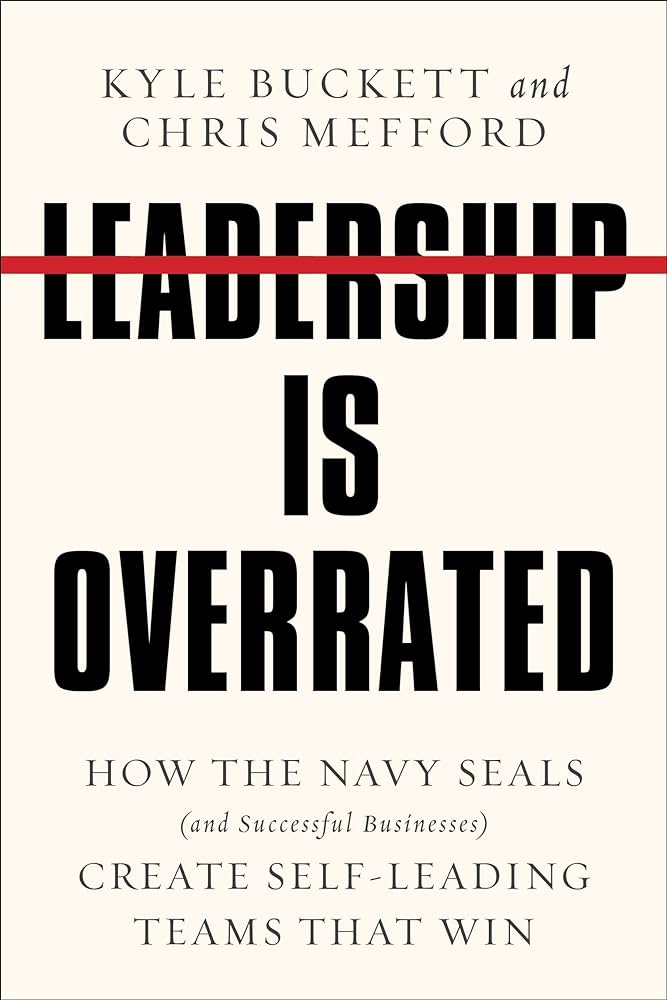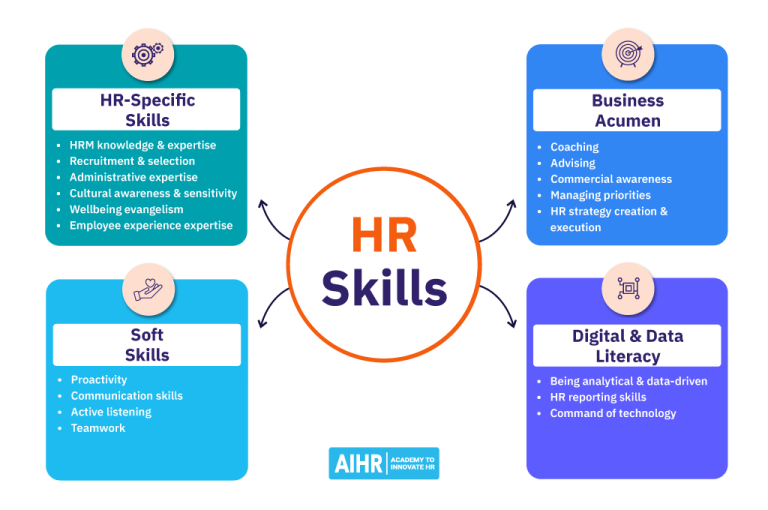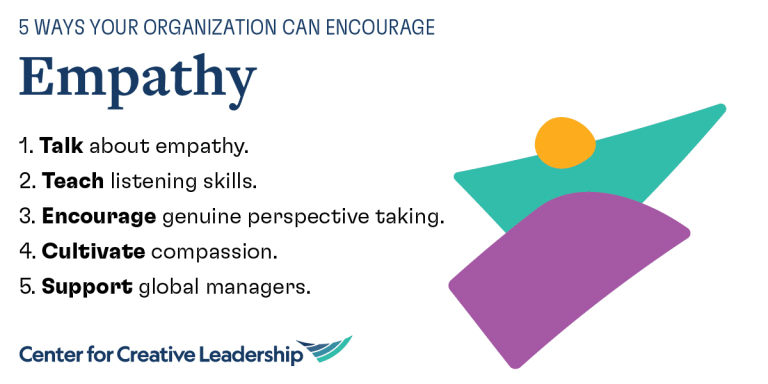Are “Leadership Skills” Overrated?
Leadership Skills are not overrated, as they play a crucial role in driving success and fostering growth within individuals and organizations. Effective leadership can inspire and motivate teams, promote innovation, and cultivate a positive work culture.
Having strong leadership skills enables individuals to make informed decisions, communicate effectively, and adapt to evolving challenges. In today’s rapidly changing business landscape, the ability to lead and influence others is highly valued and sought after. Developing and honing leadership skills can lead to personal and professional growth, and ultimately contribute to overall success and achievement.
The Importance Of Leadership Skills
Leadership skills are often considered essential for success in various aspects of life, whether it’s in the workplace, sports teams, or even personal relationships. These skills enable individuals to guide, motivate, and influence others towards a common goal. While some might argue that leadership skills are overrated, their importance cannot be understated. Let’s explore how these skills contribute to increased productivity and effective decision-making.
Increased Productivity
Effective leaders have the ability to inspire and motivate their team members, fostering a sense of dedication and commitment. By providing clear expectations, setting goals, and recognizing achievements, leaders create an environment that encourages excellence and boosts productivity. Employees who feel supported and empowered through strong leadership are more likely to be engaged, motivated, and driven to perform their best. This heightened productivity leads to better overall results for organizations and individuals alike.
Effective Decision Making
Leadership skills play a crucial role in decision-making processes. Strong leaders possess the ability to gather relevant information, evaluate different perspectives, and make informed decisions efficiently. They consider the needs and opinions of their team members, promoting a collaborative approach that fosters creativity and innovation. Effective decision-making entails not only making the right choices but also inspiring confidence and trust among team members, ensuring everyone is aligned and committed to the decisions made.

Credit: www.linkedin.com
Misconceptions About Leadership Skills
Leadership skills are often thought to be overrated, but the truth is that they play a crucial role in the success of any organization. Effective leaders inspire and motivate their teams, driving them towards achieving goals and creating a positive work environment.
It’s a misconception to dismiss the importance of leadership skills.
Natural Ability Vs. Learned Skills
When it comes to leadership skills, one common misconception is that individuals are either born with natural leadership abilities or they are not. However, this belief disregards the fact that leadership skills can be developed and refined through learning and experience.
While some people may have certain traits that naturally lend themselves to leadership, such as charisma or confidence, these qualities alone do not guarantee effective leadership. In fact, research consistently shows that successful leaders often possess a combination of innate characteristics and learned skills.
Leadership skills, such as communication, decision-making, and problem-solving, can be acquired through education and practice. By investing time and effort into studying leadership theories, attending training programs, and seeking mentorship opportunities, individuals can enhance their leadership abilities.
This misconception also leads to the belief that only certain individuals are capable of becoming leaders. In reality, leadership is not limited to a select few; it is a skill set that can be developed by anyone willing to put in the effort.
One-size-fits-all Approach
Another misconception about leadership skills is the idea that there is a “one-size-fits-all” approach to leadership. This belief assumes that a specific set of skills and behaviors will allow anyone to effectively lead in any situation.
However, effective leadership is not a rigid formula. It requires flexibility, adaptability, and the ability to understand and respond to different situations and individuals. Each leadership situation is unique, and what works for one leader may not work for another.
Instead of subscribing to a one-size-fits-all approach, successful leaders understand the importance of tailoring their leadership style to fit the needs of their team and the demands of the situation. They are skilled in recognizing the strengths and weaknesses of their team members and adapting their leadership strategies accordingly.
This flexible and adaptable approach allows leaders to create a positive and productive work environment, foster collaboration, and bring out the best in their team members. It also acknowledges the fact that leadership is not about imposing one’s own style onto others, but rather about empowering and inspiring individuals to reach their full potential.
The Role Of Leadership Skills In Career Success
Leadership skills play a crucial role in an individual’s career success. While some may argue that these skills are overrated, the truth is that they have a significant impact on important aspects such as promotions, advancement opportunities, and building strong teams.
Promotions And Advancement Opportunities
Promotions in the workplace are often awarded to individuals who possess strong leadership skills. This is because leaders are capable of taking charge, making difficult decisions, and motivating their team members towards achieving common goals. By demonstrating effective leadership, employees prove their potential to handle higher responsibilities, which can result in faster career progression and increased opportunities for advancement.
Building Strong Teams
Another area where leadership skills prove their worth is in building strong teams. Effective leaders have the ability to inspire and guide their team members, fostering a positive and productive working environment. By providing clear directions, resolving conflicts, and distributing responsibilities, leaders ensure that teams function cohesively and efficiently. Strong team dynamics lead to better collaboration, innovation, and ultimately, improved business performance.

Credit: peakalignment.wordpress.com
Developing Leadership Skills
Leadership skills are often regarded as essential attributes for success in the professional world. However, there is ongoing debate about whether the importance placed on these skills is justified or if they are simply overrated. Regardless of where one stands on this issue, it is undeniable that developing leadership skills can have a positive impact on individuals and their careers.
Continuous Learning And Growth
One of the key aspects of developing leadership skills is the commitment to continuous learning and growth. Effective leaders recognize that leadership is not a stagnant trait, but rather an evolving process that requires ongoing education and development. This commitment to continuous learning allows individuals to stay relevant in an ever-changing business landscape and adapt their leadership style accordingly.
Continuous learning can take various forms, such as attending leadership workshops, taking online courses, reading relevant books and articles, or even seeking mentorship from experienced leaders. By actively seeking opportunities to expand their knowledge and skills, individuals can equip themselves with the tools necessary to lead with confidence and effectiveness.
Practical Application And Experience
While theoretical knowledge is valuable, practical application and experience are equally crucial for developing leadership skills. The ability to put theoretical concepts into practice allows individuals to gain a deeper understanding of their strengths, weaknesses, and preferred leadership style.
Practical application can come in the form of taking on leadership roles in various settings, such as leading a team project at work, volunteering to lead a community initiative, or even starting a small business. These experiences provide individuals with real-life challenges and opportunities to develop their decision-making, problem-solving, and communication skills.
Summary: Developing leadership skills involves a commitment to continuous learning and growth, as well as practical application and experience. By actively pursuing opportunities to expand their knowledge and putting their skills into practice, individuals can develop the necessary attributes to become effective leaders.
The Future Of Leadership Skills
As we navigate through an era of rapid change and disruption, the future of leadership skills holds immense importance. Traditional notions of leadership are being challenged, and new skills are emerging as pivotal for success. Among these skills, two that are gaining prominence are adaptability and flexibility, and emotional intelligence.
Adaptability And Flexibility
In today’s fast-paced and ever-changing world, the ability to adapt and be flexible is critical for leaders. Organizations face multifaceted challenges and unpredictable circumstances that necessitate leaders who can swiftly adjust their plans and strategies. Adaptability and flexibility enable leaders to stay ahead of the curve, identify opportunities, and make agile decisions.
Here are a few reasons why adaptability and flexibility are vital:
- They foster resilience and enable leaders to effectively navigate through uncertainties.
- They promote innovation by encouraging leaders to embrace new ideas and approaches.
- They enhance problem-solving abilities as leaders can swiftly adapt their methods to address emerging challenges.
Leaders who possess these skills cultivate an environment that encourages change, embraces diversity, and welcomes innovation.
Emotional Intelligence
While technical expertise and academic qualifications have traditionally been considered crucial for leadership, emotional intelligence is now gaining recognition as a key leadership trait. Emotional intelligence refers to the ability to understand and manage one’s emotions, as well as empathize with others.
Here’s why emotional intelligence is becoming increasingly essential:
- It facilitates effective communication and builds stronger relationships among team members.
- It helps leaders to be aware of their own emotions and manage them in high-pressure situations.
- It enables leaders to recognize and understand the emotions of their team, leading to better collaboration and teamwork.
Leaders with emotional intelligence can create a positive work culture where individuals feel valued, motivated, and supported.
In conclusion, adaptability and flexibility, along with emotional intelligence, are crucial skills for the future of leadership. Leaders who possess these skills are able to navigate through uncertainty, drive innovation, and foster a positive work environment. As we move forward, it is imperative for individuals aspiring to lead to develop and enhance these skills to stay ahead in the dynamic landscape of business and leadership.

Credit: www.youtube.com
Frequently Asked Questions Of Are “leadership Skills” Overrated?
Are Leadership Skills Necessary In Every Profession?
Yes, leadership skills are essential in all professions as they enable individuals to guide and inspire others towards achieving goals.
Can Leadership Skills Be Learned And Developed?
Absolutely! Leadership skills can be learned through training, practice, and experience, making it possible for anyone to become an effective leader.
How Do Leadership Skills Contribute To Success?
Leadership skills play a crucial role in success as they empower individuals to make informed decisions, motivate teams, and effectively manage resources for achieving desired outcomes.
Conclusion
Ultimately, while leadership skills may be highly praised and sought after, it is important to consider their limitations and potential overemphasis. Effective leadership encompasses more than just a set of skills; it requires a holistic understanding of people, empathy, and adaptability.
While skills are undoubtedly valuable, they should not overshadow the importance of character, ethics, and teamwork in achieving successful leadership outcomes. As with any aspect of life, balance is key.




